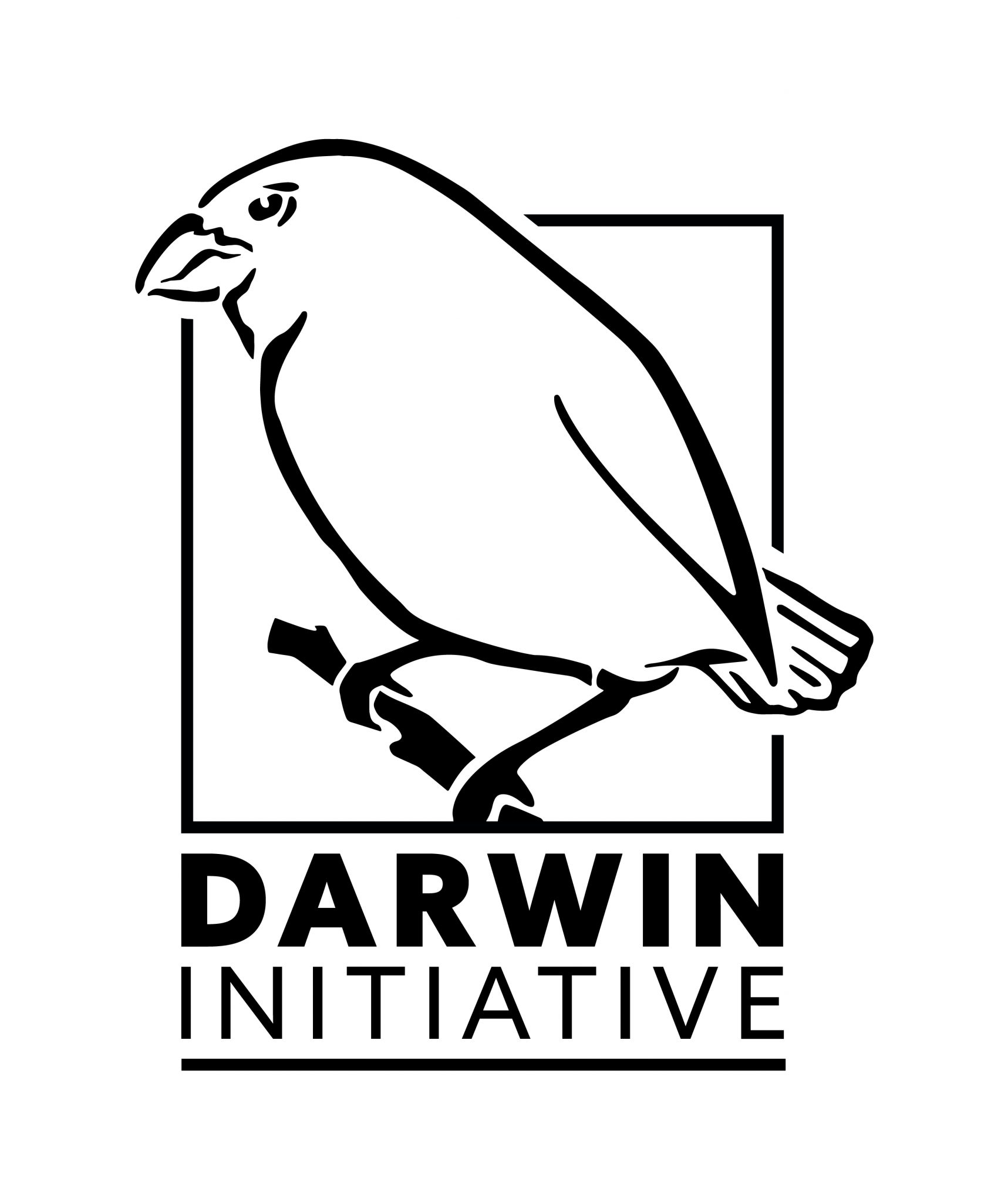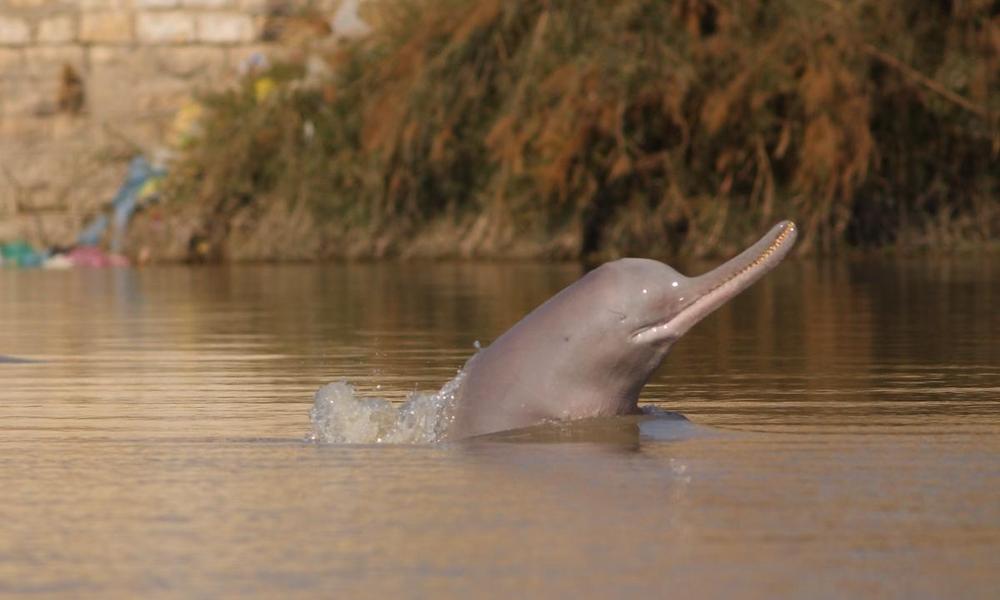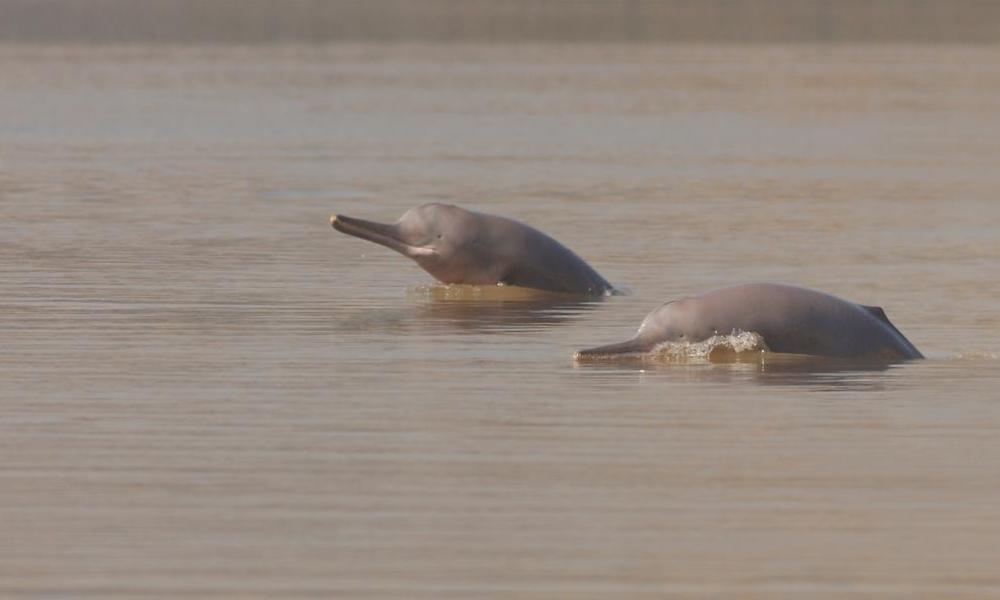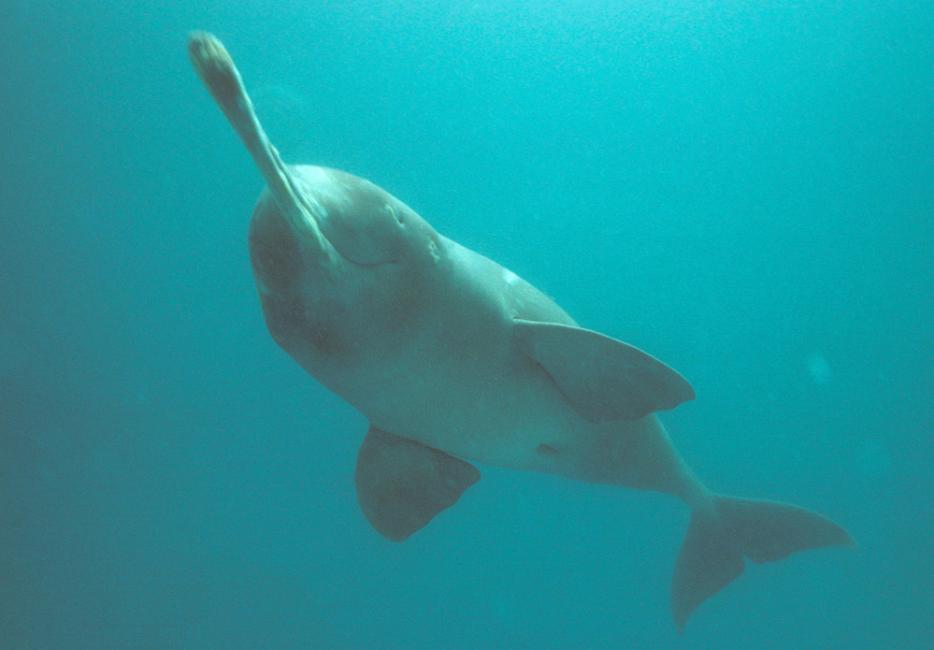

The issue
The issue
River dolphins are extraordinary. They are the top predators in some of the world’s greatest river systems and they function as a key indicator species for the health of those rivers. Where freshwater dolphin populations are thriving, it is likely that the overall river system is flourishing also, providing the critical natural resources for countless other wildlife species and the riverine communities whose livelihoods depend on them. But river dolphins are only just holding on. They are faced with a barrage of threats, all 6 species are classified as either Endangered or Critically Endangered on the IUCN Red List. Dams, fishing, and pollution threaten their existence. We need to act now to save these important creatures.
The Solutions
The Solutions
In India and Pakistan, hundreds of endangered river dolphins die annually as bycatch (getting accidentally entangled in fishing nets and drowning). This also damages the nets, resulting in lost fish catch and therefore lost income for fishers. With support and funding from the Darwin Initiative, WWF trialled an innovative solution called a ‘pinger’. A pinger is an acoustic device which is attached to nets and emits an electronic ‘ping’, helping to keep the river dolphins at a safe distance to avoid entanglement. Building on an initial study of Irrawaddy dolphins in Indonesia, our project assessed whether this solution works for the Indus river dolphin in Pakistan and the Ganges river dolphin in India.
Building on ‘Mitras’ or ‘Friends of the River’ in India, and adapted to the local cultural context in Pakistan, a diverse group of motivated volunteers were trained in citizen-science methods to help record the fish catch (weight), species composition, fish size, and any net damage caused by dolphins.
“For an initial trial, the results are extremely encouraging- not only were pingers proven effective at avoiding river dolphin bycatch, but they also resulted in increased fish catch for fishers. This project wouldn't have been possible without the amazing support of the local communities, and their purposeful participation in our citizen science programme resulted in the rescue and release of 6 endangered river dolphins.”
Leanne Quille, Senior Programme Advisor at WWF-UK

The results
The results
- Pingers are effective at reducing river dolphin bycatch, with zero bycatch mortality reported during the trials.
- Pinger use is reducing damage to nets and increasing fish catch for fishers.
- Over 5000 community members with improved knowledge and awareness of river dolphin conservation and harmful fishing practices.
- Key results and project learnings shared with local decision-makers and featured at international platforms.
After completing the second and final year of our project in April 2024, we successfully concluded the study. You can watch our results sharing webinar here, and read the project reports here.

Next steps
Next steps
WWF are committed to continuing the promising progress of these initial trials and are exploring options to optimize the use of pingers in India, Pakistan, and other river dolphin range states.
